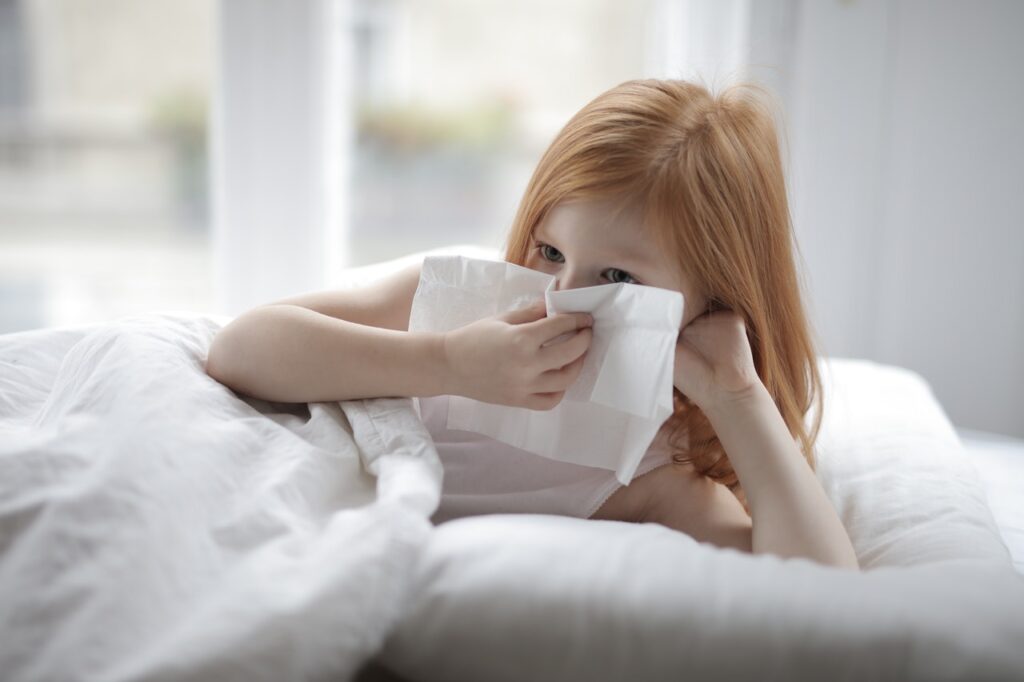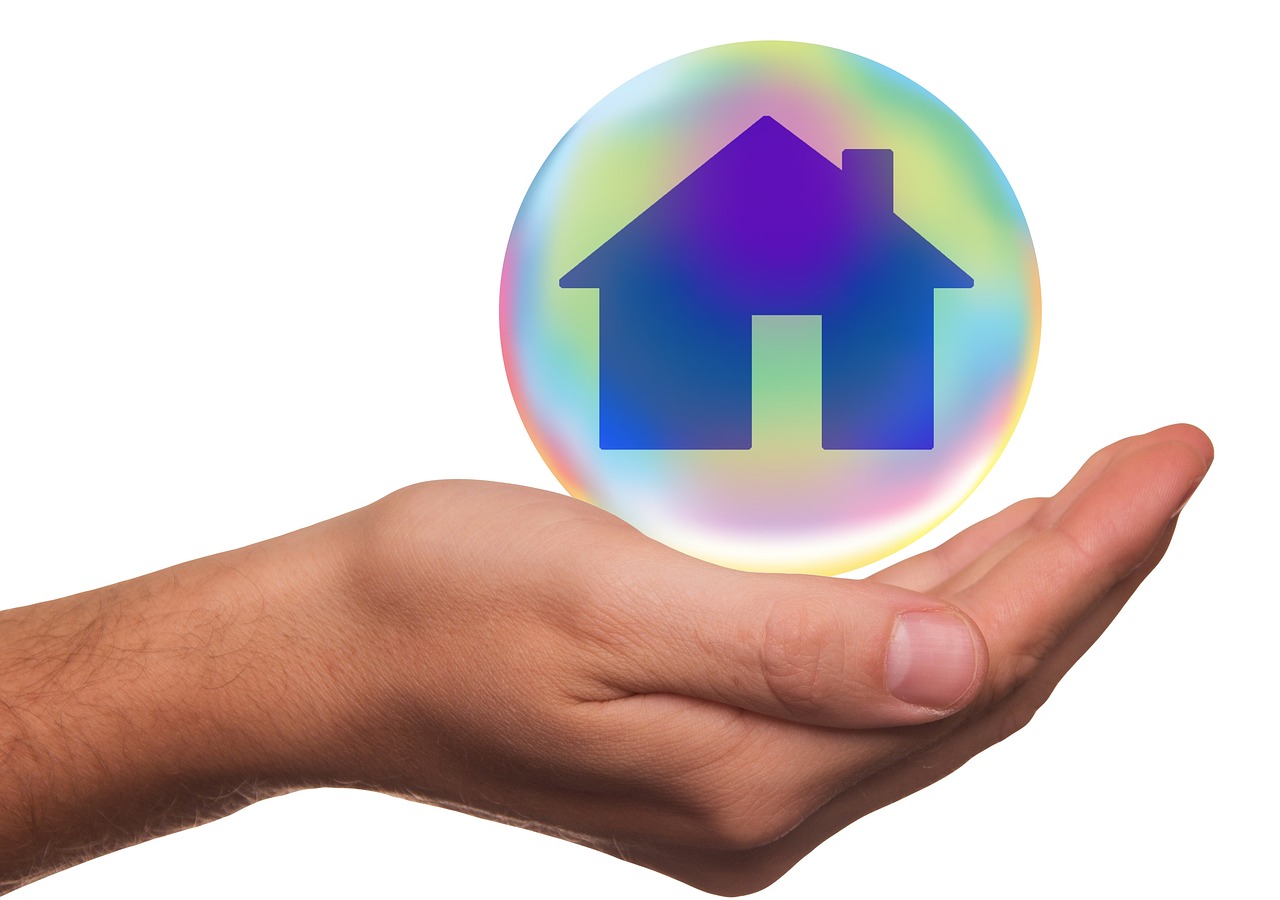It is not always easy to tell if your child may be having an allergy reaction. However, there are many warning signs that you can look out for. If you notice any of the below symptoms coming on while at home, please take them to your doctor!

Stuffy Nose and Itchy Throat
If your child is experiencing a stuffy nose or throat, this may be the most common symptom that accompanies allergies. When those tissues swell up and start to block the airway, it can lead to difficulty breathing making an allergy very dangerous for children who have asthma symptoms.
This is also one of the earliest signs of an allergic reaction, so if you notice these two tell-tale signs in combination with other milder reactions like sneezing, red eyes, or itching skin, then make sure you call 911 immediately!
Itchy throat and stuffy nose are just two of the many allergy symptoms your kid might have, so it’s important for you as parents not only to keep an eye on them but also to make sure they know what kind of allergens cause such reactions. Sometimes even little exposure can lead to a severe allergy attack.
More importantly, because most kids react to plants, you must understand the tree pollen Allergy symptoms & causes from Thermo Fisher to gauge your kid’s allergy severity better and act accordingly.
If your baby has already developed some allergies, then there is no point trying to prevent further ones by avoiding certain foods: kids will need an allergen-rich diet until about three years old when their system becomes strong enough to cope with this type of food (hence why pregnant women should avoid peanuts).
If your child has a stuffy or runny nose and itchy throat, you should first determine if they are having an allergic reaction. The symptoms of allergies can vary depending on what type of allergy they have, but there are usually some pretty violent reactions with breathing problems that may escalate without medical attention.
Periodic Asthma Symptoms Can Be a Sign of Allergies
An allergic reaction can lead to an episode of asthma in children. So, to ensure your baby is healthy and comfortable, have a guide on how to handle such allergy reactions.
For example, if you notice your child having trouble breathing after exercising or playing outside, it could indicate he is experiencing an allergy attack and should see a doctor immediately.
If you have a child that is experiencing asthma symptoms, this can be very concerning. Although asthma can be related to an allergy, in most cases, it is not. However, if your child has experienced symptoms described as “periodic” similar to those listed above, they may have an allergy and should see a doctor immediately. These periodic breathing problems will often occur when the child or teen wakes up or goes into their room at night – especially on nights with high humidity levels. Unfortunately, some parents mistake these episodes as evidence that their child must need more sleep; but in reality, this could signify something much worse.
Obstructive Swelling or Nose, Lips, Ears
If you notice the swelling of your child’s nose, lips, and ears, then it is highly possible that he may be having an allergic reaction. You must not ignore this since this will only worsen his condition if left untreated.
You might notice your child’s lips, tongue, or throat swelling. It is essential to stay calm and call 911 if you suspect anaphylaxis. Make sure to always have a non-drowsy antihistamine with you when running errands for emergencies such as these. If the symptoms are severe, take them directly to the hospital emergency room to be treated right away. This will help prevent further reactions from occurring.
When your child has an allergic reaction, you may notice them coughing or struggling to breathe. This can happen from the swelling in their airways that makes it difficult for them to take a breath. If they have trouble breathing and cannot cough this away, seek emergency medical help right away.
Skin Hives
Symptoms: red welts on the skin that can be itchy and sometimes painful. These will occur within minutes to hours after your child’s exposure to an allergen.
Skin rashes or hives are a common allergic reaction in children associated with food allergies, including peanuts, tree nuts, milk eggs, soy fish, shellfish (crustaceans), wheat/gluten, sesame seeds, synthetic foods, dyes, spices, flavors, and natural latex rubber.
Allergic shiners are dark circles under the eyes that can result from hives (urticaria) in eyelid dermatitis due to allergies such as hay fever, food allergies, drug-induced urticarial, etc. Although they might not look bad, if left untreated, people with allergic shiners will suffer from itchiness, redness, pain, leading to sleep problems, shameful feelings about appearance, and loss of self-confidence.
Itchy Often Watery Eyes
One of the most common allergic symptoms your child may be having is itchy, often watery eyes. If you notice this symptom, contact a doctor right away because it’s one of the warning signs that anaphylaxis is occurring.
When your child’s eyes start to itch, it may be a sign that they have an allergic reaction. This symptom is often accompanied by watering of the eyes or puffy eyelids and, if left untreated, can lead to eye damage.
If you’ve already ruled out a cold or infection as the culprits of this symptom, then it is best that you contact your physician to get tested for allergies. It could save their lives!
Another telltale that your child is having an allergic reaction and should go to the doctor is itchy, often watery eyes. This symptom can come in many different forms, but these symptoms indicate allergies and need treatment immediately.
Stubborn Cough
If you have ever experienced an allergy, then you probably know that it can get your child down awfully quick. Your little one whines and complains because they have a dry or tickly throat. And when they start coughing – sometimes to the point of bringing up mucus – it is very difficult for them not to irritate their throats even more.
Well, imagine if your child has started to develop a cough that just will not go away. It’s been more than two weeks already, and they still have the same stubborn cough! This is an all-too-familiar situation for many parents who have children with allergies .
Vomiting and Diarrhea
The worst allergy symptoms when your child may be having an allergic reaction are vomiting and diarrhea. If the kid is vomiting, it usually means that the body has started to reject something in their stomach or intestines due to their food allergies. Diarrhea can also happen if there’s another symptom like skin hives because of an allergen orally taken into the system, which prevents certain enzymes from forming properly within the digestive tract.
Vomiting can be a very frightening experience for children and parents, especially if it’s severe or accompanied by diarrhea. Although this may not seem like such a bad thing—all you want is for your child to feel better, right? Unfortunately, it can be perilous because when vomit comes up without discovering the actual cause of their allergy, they are at risk of aspirating that food into their lungs, causing pneumonia or other serious conditions.
With older kids who have learned how to cough properly after throwing up oftentimes, there isn’t as much cause for concern. However, with younger toddlers and babies who haven’t yet developed these skills doctors always recommend taking them directly to the hospital if they vomit or have diarrhea.
The worst allergy symptoms to watch out for might be vomiting and diarrhea. It can cause the child’s body to go into shock, which is not good at all. The best thing you can do as a parent in this situation is contact medical help immediately.
Loss of Consciousness
If your child is having an allergic reaction, you may notice that they are losing consciousness. If this happens to your child, it means something serious could be going on, and you need to get them medical help immediately.
Loss of consciousness is a terrifying symptom when your child may be having an allergic reaction. This can happen as their body tries to stop them from ingesting any more allergens; it’s actually part of the immune system response in a way, and your child has no control. In severe cases, they could lose consciousness altogether (which you must seek immediate medical attention for).
Conclusion
In conclusion, if you suspect that your child may be having an allergy reaction, you should seek medical attention. Symptoms such as those listed above are very common among kids who experience allergies of any kind. Therefore, while you are not always safe in assuming your child may have an allergic reaction, there is a good chance they could be. This is why it’s best to seek medical attention if you have any reason to believe this might be the case.




Leave a Reply